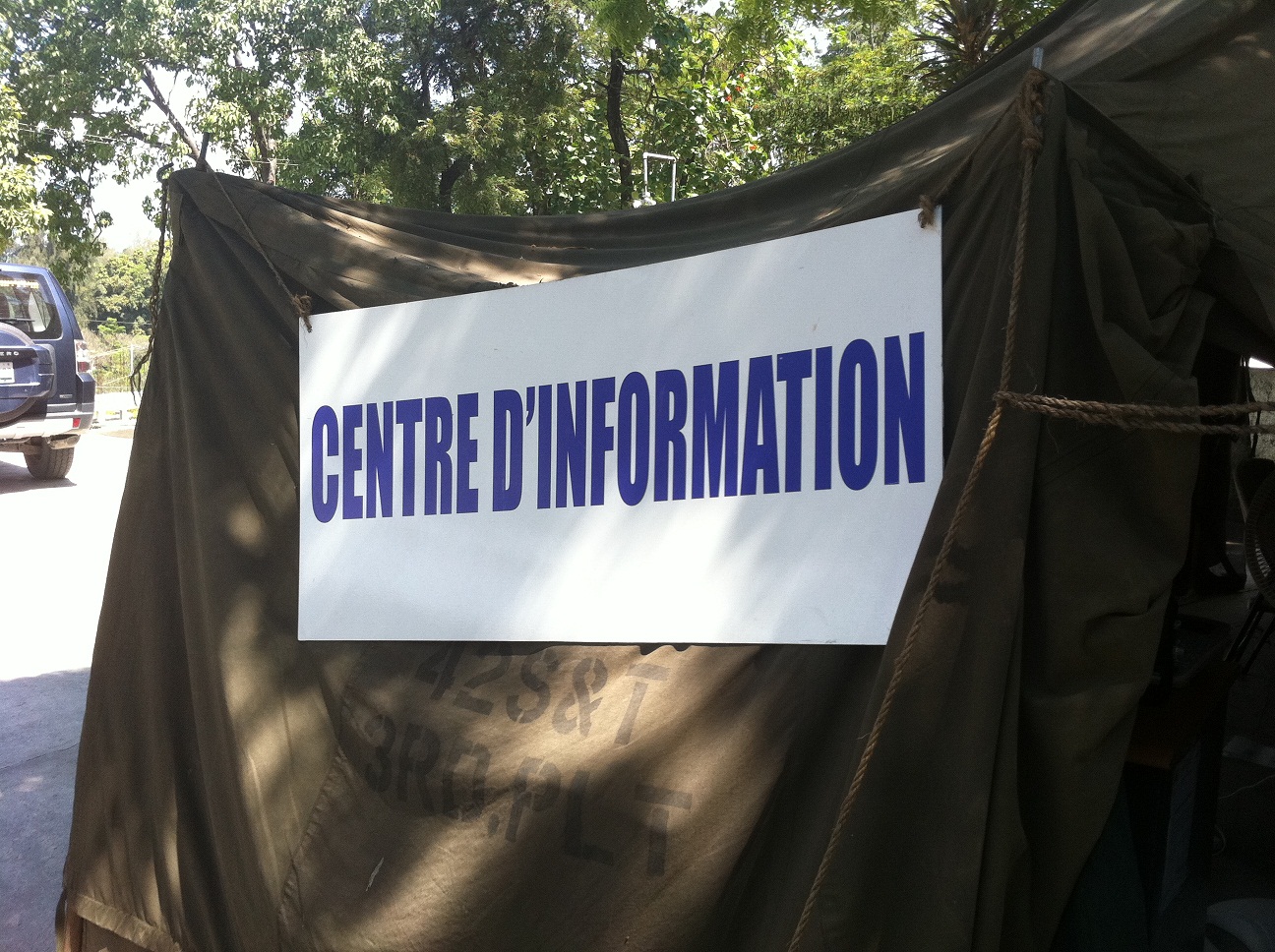'Till November: Haiti, Mobile, and the Coming Elections

Mobile phones are everywhere in Port-au-Prince. Digicel, with one of the tallest buildings in town, also seems to be among the biggest employers - Digicel credit stations, with matching red kettle-drum desks and umbrellas, populate the side of every road, and red-capped attendants hawk pre-paid cards in 'Rechaj' vests. One of the NDI Haiti staff members credited the company with 'changing the face of the country', although not without cost.
Following the January earthquake, mobile phones were also everywhere: the media seemed to want to give them credit for saving, rescuing, and rebuilding Haiti: the 4636 Emergency Information Service shortcode, the US$22m in donations to the Red Cross, the use of apps as a first responder. These were all savvy, even unprecedented uses of mobile, but in some ways only drove home a point - mobile is ubiquitous now (and here), and when we think about how to communicate, we need to include mobile as an infrastructure, a device, a platform, and a behavior.
That's why when the NDI Haiti office expressed an interest in helping partners using mobiles to communicate with their communities, it seemed like a natural next step. NDI Haiti has a longstanding relationship working with community groups to help them prioritize and organize around community needs. Many of these groups were located in areas devastated by the earthquake, and in the aftermath set up ‘Centres d’Information’ to help share government, aid group, and civil society organization information with citizens. On average, these centers are visited by 5-10 people a day, looking for resources on the reconstruction, elections, security, and more.
The Information Centers do a fantastic job of centralizing information in one location, but that very centralization is a conundrum; the degree of displacement, along with more prosaic challenges to communications in Haiti, have made it difficult to get information to people once they’ve come and gone from the centers. As the Information Center members prepare to do civic education and Get Out the Vote efforts (GOTV) for the November general elections, the need to push information took on an increased urgency.
Early on, the partners and NDI decided we would use FrontlineSMS; while the contact management feature is not quite as smooth as we’d like, the sheer functionality of being able to send bulk SMS without an internet connection is unbeatable. To get up and running, we've spent the week meeting with the field coordinators and thinking about data collection, communications and information needs. This feedback will help us decide how, when, and where to deploy FrontlineSMS to the best effect.
It won't be completely straightforward: the partner groups raised questions about cost, frequency, and trust; all issues that will have to be addressed in the coming weeks. The new computers will arrive in the Centers by the end of the month, and someone from the ICT team will return to Haiti to run trainings at the centers. They'll have difficult questions as they work with partners to find meaningful answers and measurable community impact.
